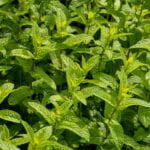Whey, a byproduct of cheese and yogurt production, is commonly used as a source of protein in the fitness and health industry. However, its benefits extend beyond just protein shakes and smoothies. In fact, whey can be used for various purposes in gardening, including as a natural pest control method to rid vegetable gardens of unwanted bugs.
As any gardener knows, pests can wreak havoc on vegetable plants, causing damage and reducing yields. From aphids and caterpillars to mites and beetles, these common garden pests can quickly multiply and threaten the health of your crops. This is where whey comes into play – its natural properties make it an effective tool for keeping bugs at bay without resorting to harmful chemicals.
In this article, we’ll explore the potential of using whey as a pesticide alternative in vegetable gardens. We’ll discuss common pests that plague gardeners, their effects on vegetable plants, and how whey can be utilized to combat them. Additionally, we’ll provide a step-by-step guide for creating a homemade whey bug spray and share tips for applying it effectively.
Lastly, we’ll delve into other uses of whey in gardening and its overall impact on plant health. So if you’re looking for sustainable and organic solutions for pest control in your vegetable garden, read on to discover how whey may be the answer you’ve been searching for.
Common Pests in Vegetable Gardens
When it comes to maintaining a thriving vegetable garden, dealing with pests is often one of the biggest challenges for gardeners. Some of the most common pests that can wreak havoc on vegetable plants include aphids, caterpillars, slugs, snails, and beetles. These pesky insects feed on the leaves, stems, and fruits of vegetable plants, leading to stunted growth, reduced yield, and in some cases, even plant death.
Aphids are among the most common pests found in vegetable gardens. These tiny insects suck sap from plants and can quickly multiply, causing damage to a wide variety of crops. Caterpillars also pose a significant threat to vegetable plants as they feed voraciously on leaves and fruits. Slugs and snails are known for their appetite for tender young seedlings and can easily decimate an entire row of crops overnight.
The impact of these bugs on vegetable plants goes beyond mere cosmetic damage. Infestations can weaken plants and make them more susceptible to diseases. For instance, while aphids feed on plant sap, they also excrete a sticky substance called honeydew that attracts mold spores. This mold growth can further harm the affected plants and reduce their overall productivity.
| Pest | Effects |
|---|---|
| Aphids | Feeds on plant sap, attracts mold spores |
| Caterpillars | Feed on leaves and fruits |
| Slugs & Snails | Feed on tender young seedlings |
The Effects of Bugs on Vegetable Plants
The presence of bugs in vegetable gardens can have detrimental effects on the overall health and productivity of the plants. Some common pests that can be found in vegetable gardens include aphids, caterpillars, and beetles.
These bugs feed on the leaves, stems, and fruits of the vegetable plants, leading to wilting, yellowing of leaves, stunted growth, and even the spread of diseases. In severe cases, a bug infestation can result in complete crop loss, impacting not only the current harvest but also future yields.
Impact on Plant Health
Bugs can physically damage the plant by chewing on its parts or sucking out its sap. This weakens the plant’s ability to photosynthesize and absorb nutrients from the soil, ultimately affecting its growth and reproductive capabilities. Furthermore, some bugs act as vectors for plant diseases, transmitting harmful pathogens from one plant to another as they feed. As a result, pest control is crucial for maintaining the health and vitality of vegetable plants in order to ensure a successful harvest.
Environmental Impact
In addition to their direct impact on plant health, bug infestations in vegetable gardens can also disrupt natural ecosystems. Pesticides are often used to combat these pests but can have negative effects on non-target organisms such as beneficial insects and wildlife. Moreover, pesticide residues can contaminate soil and water sources if not applied properly or if runoff occurs during rainfall. Therefore, it is important to explore alternative methods of pest control that are both effective and environmentally sustainable.
How Whey Can Be Used as a Natural Pest Control Method
Whey, a byproduct of cheese production, is not only a valuable source of protein and nutrients for humans but also for plants. It has shown great potential as a natural pest control method in vegetable gardens. The high levels of lactic acid in whey make it an effective deterrent for many common garden pests. Here are some ways in which whey can be used to naturally control bugs in vegetable gardens:
- Whey bug spray: By mixing whey with water and a small amount of dish soap, you can create a potent bug spray that is safe for your plants and the environment. The lactic acid in whey disrupts the cell membranes of insects, effectively killing them without harming your vegetables.
- Soil drench: Diluted whey can also be used as a soil drench to protect plant roots from nematodes and other soil-borne pests. When applied to the soil, whey encourages the growth of beneficial microorganisms that outcompete harmful organisms.
- Foliar feed: In addition to its pest control properties, whey is rich in nutrients that can benefit plant health. Spraying diluted whey directly onto plant leaves can help fortify them against insect damage while providing them with essential nutrients.
Using whey as a natural pest control method offers several benefits for both your plants and the environment. Not only is it an organic and sustainable solution, but it also provides additional nutrients to your garden. The next section will provide you with a step-by-step guide on how to make a whey bug spray at home and tips on effectively applying it in your vegetable garden.
The Benefits of Using Whey to Kill Bugs in Vegetable Gardens
Reduction of Chemical Exposure
One of the most significant benefits of using whey to kill bugs in vegetable gardens is the reduced exposure to harmful chemicals. Many commercial bug sprays contain toxic ingredients that can be harmful to both plants and humans.
By using a natural alternative like whey, gardeners can effectively control pests without the risk of chemical exposure. This is particularly important for those who want to maintain an organic garden or have concerns about the impact of synthetic pesticides on the environment.
Promotion of Soil Health
In addition to its pest control properties, whey also offers benefits for soil health. Whey is rich in nutrients such as nitrogen, which can help improve soil fertility and promote healthy plant growth. When used as a bug spray, whey not only targets pests but also provides an additional source of nutrition for the soil. This natural and sustainable approach to pest control aligns with the principles of organic gardening and can contribute to a healthier garden ecosystem.
Cost-Effective Pest Control Solution
Another advantage of using whey as a bug spray in vegetable gardens is its cost-effectiveness. Whey is often readily available and can be obtained from sources such as cheese production or yogurt making. Instead of purchasing expensive commercial pesticides, gardeners can repurpose this byproduct into an effective pest control solution.
This makes whey a practical and affordable option for managing common garden pests while reducing the reliance on store-bought chemicals. Overall, utilizing whey as a natural bug spray offers numerous benefits for both plants and the environment, making it a desirable choice for sustainable gardening practices.
Step-by-Step Guide on How to Make a Whey Bug Spray
Making your own whey bug spray is a simple and cost-effective way to naturally control pests in your vegetable garden. Here’s a step-by-step guide on how to create your own whey bug spray:
1. Gather the ingredients: To make whey bug spray, you will need liquid whey, water, liquid dish soap, and a spray bottle. Liquid whey can be obtained from strained yogurt or as a by-product of making cheese.
2. Mix the ingredients: In a large bowl, combine 1 part liquid whey with 3 parts water. For example, if you have 1 cup of liquid whey, mix it with 3 cups of water. Add a few drops of liquid dish soap to the mixture and stir well.
3. Transfer the mixture to a spray bottle: Once the ingredients are thoroughly mixed, pour the solution into a clean spray bottle. Make sure to use a bottle that has not been previously used for toxic chemicals.
4. Apply the whey bug spray: Shake the spray bottle well before each use and then simply mist your vegetable plants with the solution, paying particular attention to the undersides of leaves where pests tend to congregate.
Using this homemade whey bug spray can help deter common garden pests such as aphids, mites, and whiteflies while also providing additional nutrients to your plants.
Remember that this natural pest control method may need to be reapplied after heavy rainfall or every one to two weeks for optimal effectiveness in controlling bugs in your vegetable garden.
Tips for Effectively Applying Whey Bug Spray in Vegetable Gardens
When it comes to effectively applying whey bug spray in vegetable gardens, there are a few key tips to keep in mind. One important tip is to make sure that the whey bug spray is applied directly onto the pests themselves.
This can be achieved by using a spray bottle or sprayer to target the bugs on the leaves and stems of the plants. By directly targeting the pests, you can maximize the effectiveness of the whey bug spray and minimize any potential damage to the plants.
Another tip for effectively applying whey bug spray in vegetable gardens is to apply the spray during the early morning or late afternoon. This is because insect activity tends to be at its peak during these times, so applying the whey bug spray at these times can result in better coverage and effectiveness. Additionally, avoid applying whey bug spray during windy conditions as this can cause the spray to drift away from its intended target.
It’s also important to reapply whey bug spray after heavy rainfall, as rain can wash away the residue of the spray and reduce its effectiveness. Regular monitoring of plant leaves for any signs of pest infestation will also help determine when reapplication is necessary. With these tips in mind, gardeners can ensure that their application of whey bug spray is effective in controlling pests in vegetable gardens while minimizing potential harm to plants and beneficial insects.
Other Uses of Whey in Gardening and Its Impact on Plant Health
Whey is a byproduct of the cheese-making process and is often used as a protein supplement for humans. However, whey also has various uses in gardening, including its potential as a natural pest control method. In addition to its effectiveness in killing bugs in vegetable gardens, whey can also have a positive impact on plant health due to its nutrient content.
One of the common pests in vegetable gardens is aphids. These small insects can quickly multiply and cause damage to plants by sucking out their sap, leading to stunted growth and deformities. Other common garden pests include caterpillars, beetles, and mites, all of which can wreak havoc on vegetable plants if left unchecked.
The effects of bugs on vegetable plants can be detrimental, leading to decreased yields and poor quality produce. Chemical pesticides are often used to control these pests, but they can have harmful effects on the environment and pose risks to human health. As an alternative, whey can be used as a natural pest control method that is both effective and environmentally friendly.
| Common Garden Pests | Effects on Vegetable Plants |
|---|---|
| Aphids | Sap-sucking, stunted growth |
| Caterpillars | Eating leaves and fruits |
| Beetles | Chewing leaves and flowers |
| Mites | Sucking plant juices causing discoloration |
Conclusion
In conclusion, the use of whey as a natural pest control method in vegetable gardens offers a sustainable and organic solution to managing common pests. By harnessing the power of whey, gardeners can effectively protect their vegetable plants from harmful insects without resorting to chemical pesticides. This not only promotes a healthier and more natural environment for plant growth but also contributes to sustainable gardening practices.
Furthermore, the benefits of using whey as a bug spray extend beyond pest control. Whey can also provide additional nutrients to the soil, promoting overall plant health and vitality. Its versatility in gardening goes beyond just pest control, making it a valuable resource for gardeners looking to implement more sustainable and organic methods in their vegetable gardens.
Overall, incorporating whey into gardening practices can have a positive impact on both plant health and environmental sustainability. As more gardeners continue to seek natural and eco-friendly solutions for managing pests in their vegetable gardens, the potential of whey as a sustainable and organic option becomes increasingly evident. With proper application and understanding of its benefits, whey can be an effective tool for maintaining healthy and thriving vegetable plants while minimizing the use of harmful chemicals.

If you’re looking to get into vegetable gardening, or are just looking for some tips on how to make your current garden better, then you’ve come to the right place! My name is Ethel and I have been gardening for years. In this blog, I’m going to share with you some of my best tips on how to create a successful vegetable garden.





